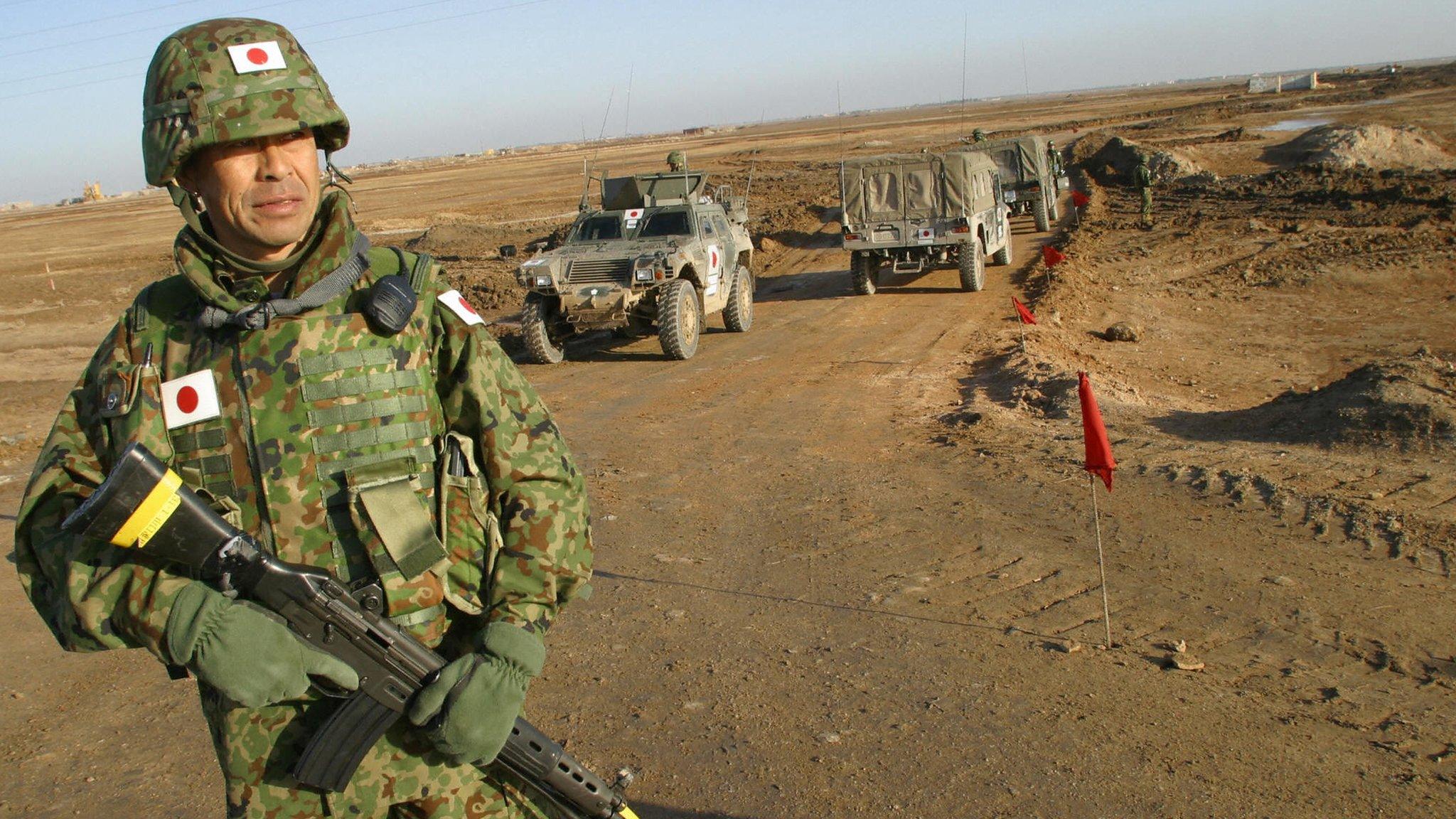Is Japan abandoning its pacifism?
- Published
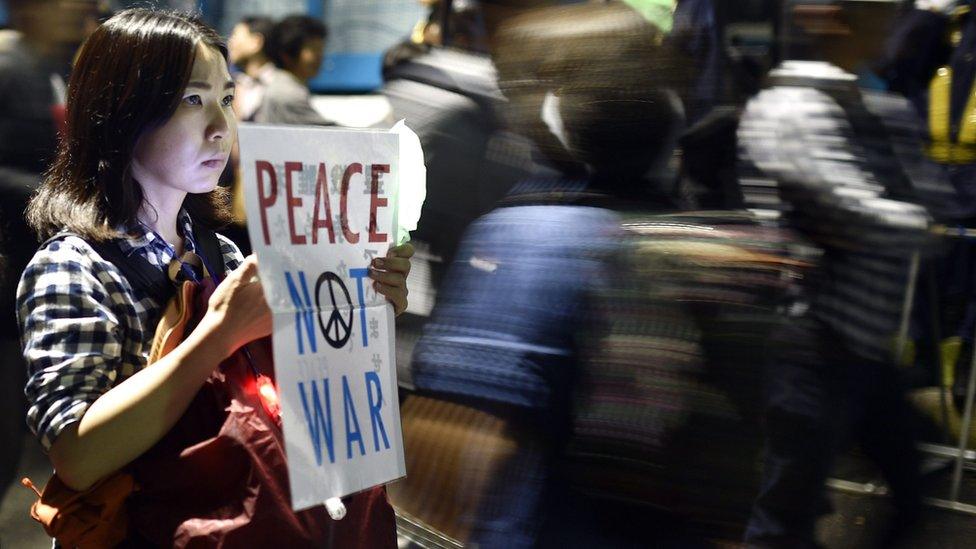
Thousands of people protested against the new security bill
Japan is a pacifist country - at least according to its constitution. Article 9, introduced under the occupying forces after the Second World War, seems unequivocal: "The Japanese people forever renounce war and the threat or use of force."
But new laws introduced by conservative Prime Minister Shinzo Abe will allow a broader interpretation of what the constitution does, and does not, permit - so-called "proactive pacifism".
Opponents say the laws are "war bills", and tens of thousands of people have taken to the streets to protest against the legislation, but some commentators argue Japan is already a significant military player. So is Japan abandoning pacifism, or has it already done so?
Four experts share their views with the BBC World Service Inquiry programme.

Prof Koichi Nakano: Threatens the foundation of Japanese society
Koichi Nakano is professor of comparative politics at Tokyo's Sophia University.
"Even though my own subject is political science, I never took an active role in politics until relatively recently. The reason why so many of the scholars feel compelled to take a stance is because the issue is to do with the destruction of the very foundation of our society.
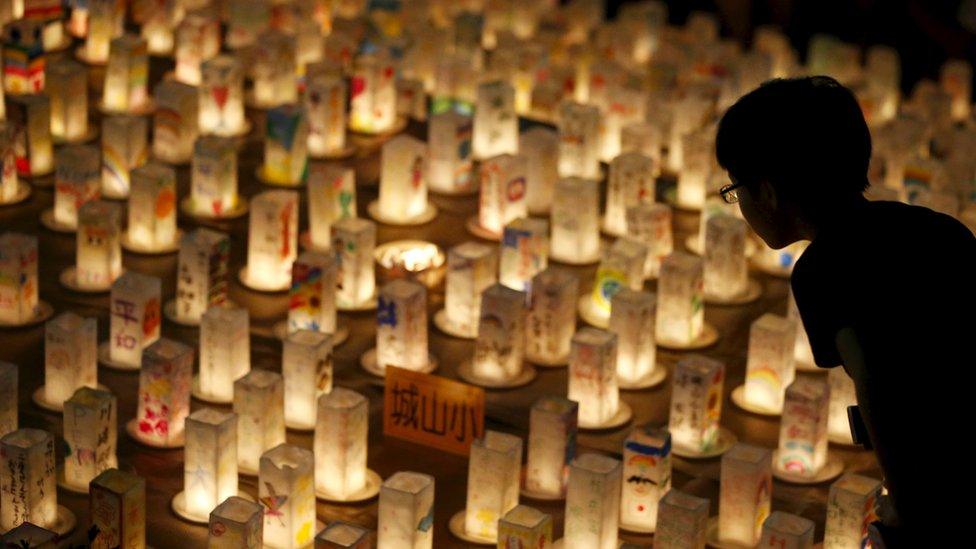
The bill was debated as the country marked 70 years since atomic bombs were dropped on Nagasaki and Hiroshima
"For a nation so tired and exhausted after the war - the A-bombs in Hiroshima and Nagasaki - this notion that we were going to be eternally in peace appealed to many. A large majority of the Japanese became attached to pacifism.
"Teachers rallied to pacifism because I think there were lots of teachers who felt such a strong regret for taking an active part in the indoctrination of militarism into the young minds during the wartime regime.
"I remember growing up in Japan in the 1970s [and] many of the characters [on] cartoons on TV often had the backdrop of growing up as an orphan, for example. Wars destroying people's life was part of the narrative. That was not confined to certain ideological corners, it was part of the popular culture.
"The government is trying to put an end to postwar pacifism as we know it. And that is worrying, because nobody signed up to this idea of Japan becoming 'normal'.
"It's only the government officials without the support of the majority of the people moving in that direction."

Keisuke Suzuki: Critical moment for Japan's national security
Keisuke Suzuki is a Japanese politician from the Liberal Democratic Party, and a junior government minister.
"The government is proposing a change of the interpretation of Article 9 of Japan's constitution: not the revision of the constitution itself but an adjustment in interpretation.
"The Chinese mainland is now behaving in a really aggressive way both in the South China Sea and East China Sea and they clearly have the intention to attack Japanese interests. This is a critical moment for Japan's national security.
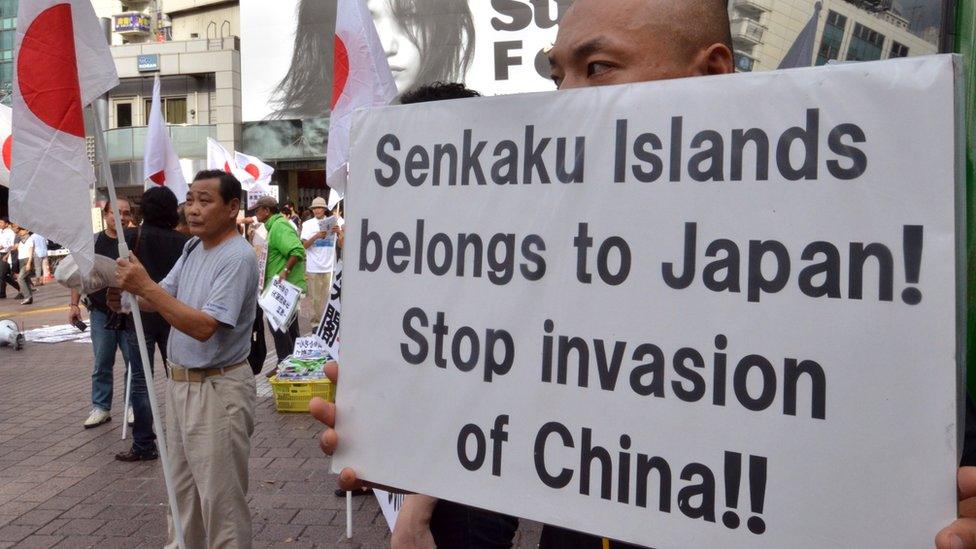
Japan and China have clashed over competing claims to an island chain in the East China Sea
"Japan doesn't have nuclear weapons or an aircraft carrier, so that only the way we can survive in this region is to strengthen ties with the United States and the international community and we need this bill to do that. To be isolated from the international community is kind of a nightmare.
"During the Gulf War in the late 80s and early 90s Japan only sent money, and didn't send any human effort, and at the time we were criticised a lot by the international community. It's important to show a strong commitment to peace building and peacekeeping.
"Imagine that Japan and the UK and Australia are in the same peacekeeping operation, and suppose one of the camps is attacked by a third party like [the so-called] Islamic State. Australian colleagues can help and defend the UK's camp but Japan's self-defence force cannot do that: we only can protect ourselves under the current interpretation. We need to change it [to meet] international standards.
"I think the majority [of the population] feels that the explanation by the government is not enough and so we should not hurry. The war bill label is really helpful for the opposition party to attack the ruling party. But it is not a war bill, that is a silly argument.
"We would not be able to send our troops for an operation that was not linked to Japan's own national security.
"What you mean by pacifism is key. If pacifism is a realistic policy to keep the stable, peaceful situation in this region, I think [the current bill] is a step towards pacifism. But if you mean a kind of idealistic concept that if Japan has no weapon, no troops, we'll be safe, then Japan is not stepping in that direction."

Prof Ellis Krauss: Japan left pacifism behind long ago
Ellis Krauss is professor of Japanese Politics at the University of California.
"Gandhi would be appalled to hear the Japanese called really pacifist.
"Japan was only truly pacifist for two years under the US occupation from 1945 to 1947. But [the US] changed its mind in 1948 with the onset of the Cold War and decided that it needed Japan to become a US ally against communism.
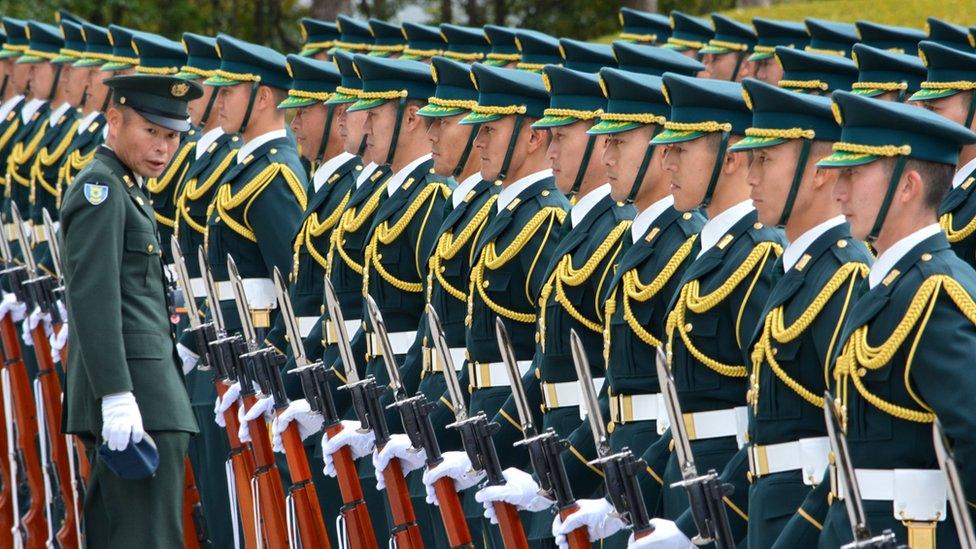
Japan's self-defence force has been engaged in international peacekeeping operations in recent years
"In the early 1950s Prime Minister Yoshida was under great pressure from the US to fully rearm. So Yoshida had a brilliant compromise which was to have a self-defence force."
The new self-defence force had separate ground, naval and air units, trained in American-style military strategies and tactics but could only be deployed in self-defence, which reassured the public and appeased the US, for a while.
"[In the 1980s] Prime Minister Nakasone allowed Japanese industry to export military hardware only to the US. In 2001 Prime Minister Koizumi sent self-defence forces to the Indian Ocean in non-combat roles to help support the war on terror after 9/11.
"They sent self-defence ground troops to Iraq in non-combat roles for reconstruction. This was the first time Japanese troops had essentially been outside of Asia since World War Two.
He argues the new legislation will represent a change - but not revolution. Japan's self-defence forces will still be limited in what they can do.
"It won't be a general collective defence whereby Japan becomes an ally like Australia or Britain. There are strict conditions on when collective self-defence could be used."

Masaru Tamamoto: Missed opportunity
Masaru Tamamoto, author
"Japan is abandoning pacifism: with this new legislation Japan reacquires the military as an instrument of foreign policy, and that's new.
"This is part of a larger shift to the right in Japanese politics.
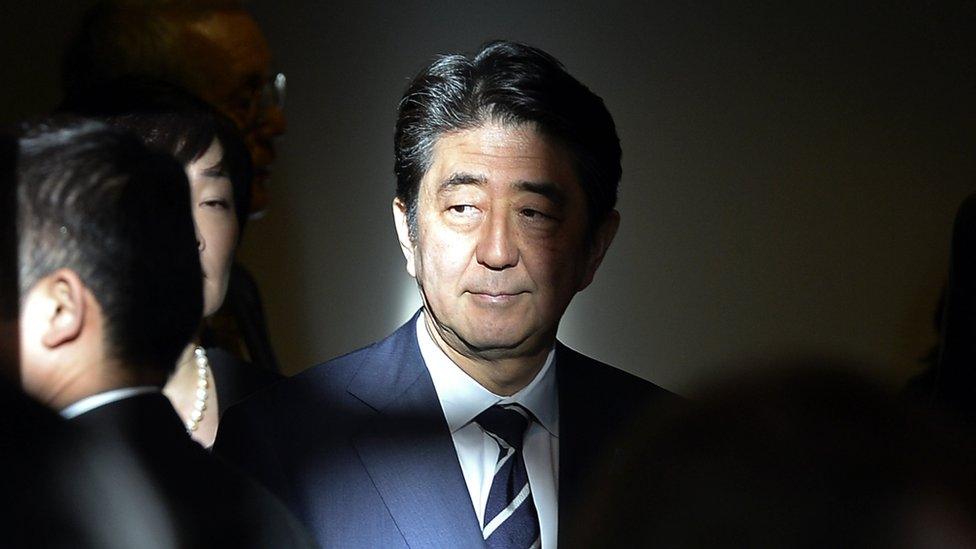
Prime Minister Shinzo Abe has been the driving force behind the new legislation
"The prime minister is fighting a nationalist war, but Mr Abe's nationalism is a fight against postwar Japan - it's about Japan itself. He looks at post-1945 Japan as something shameful.
"The constitution deprives Japan of a normal military force and he wants Japan to recover full sovereignty - which means having a military that can be used as an instrument of foreign policy. He wants to write a new constitution by getting rid of the one imposed by the American army of occupation immediately after the Second World War.
"I think it's a missed opportunity.
"Japan is a great, big power. It's economically and by population a very large country. It can have tremendous influence.
"East Asia is a pretty rough neighbourhood strategically speaking, but there's a certain balance to the situation and I'm not convinced that having Japan turning into an active military power in alliance with the United States is going to make the region safer for anybody.
"My hope was that there would be enough quality and nuance in Japanese political leadership that it could spread pacifism in the region to make this area in east Asia a more stable and peaceful place, so that's a great opportunity I think that's thrown out."
The Inquiry is broadcast on the BBC World Service on Tuesdays from 12:05 GMT/13:05 BST. Listen online or download the podcast.
- Published19 September 2015
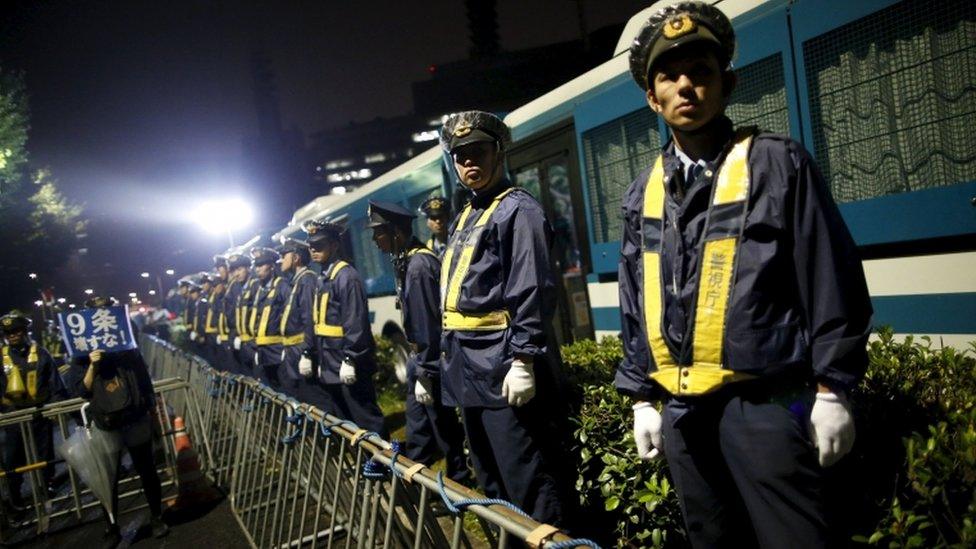
- Published18 September 2015
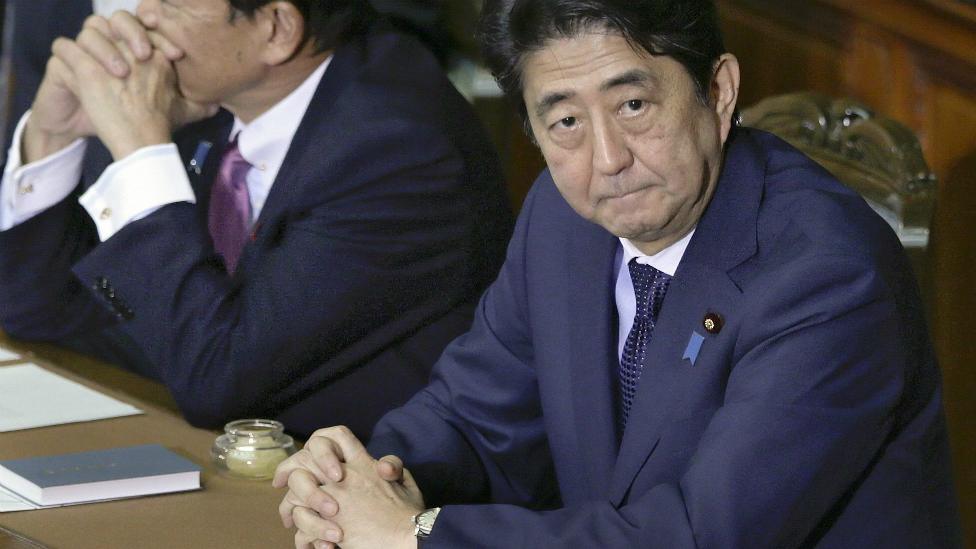
- Published16 July 2015

- Published2 July 2014
